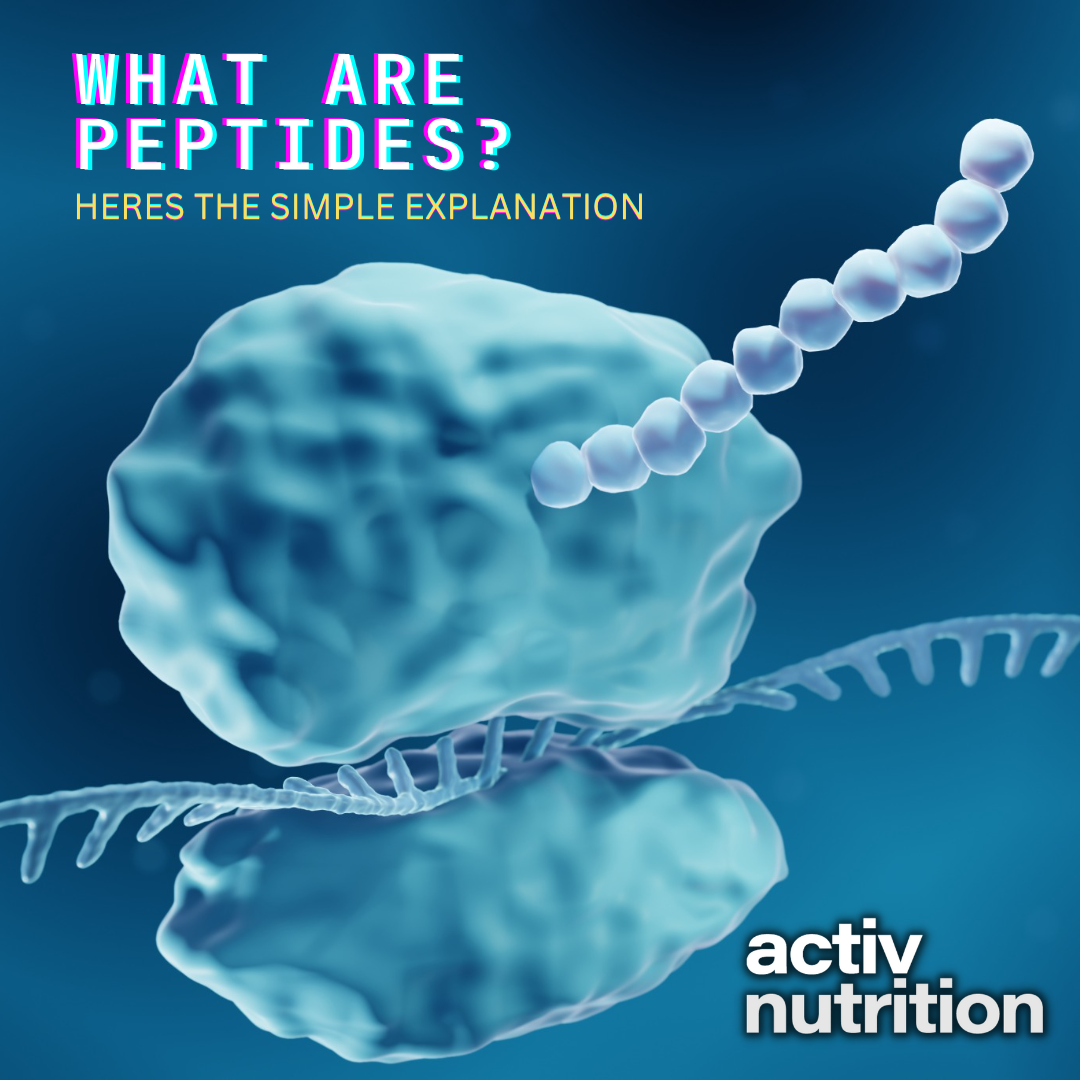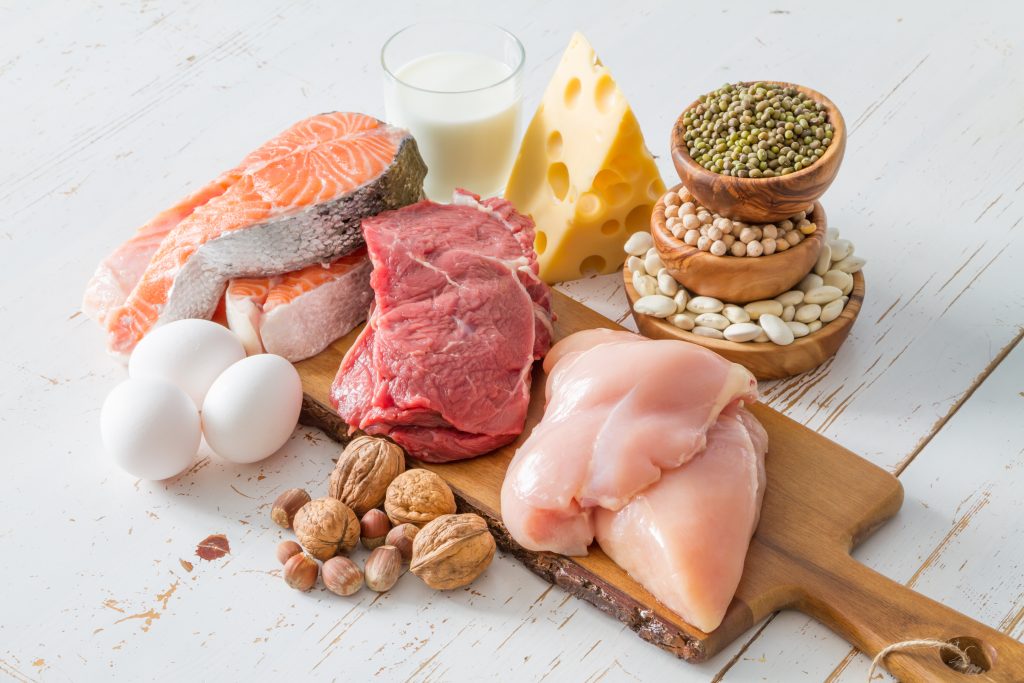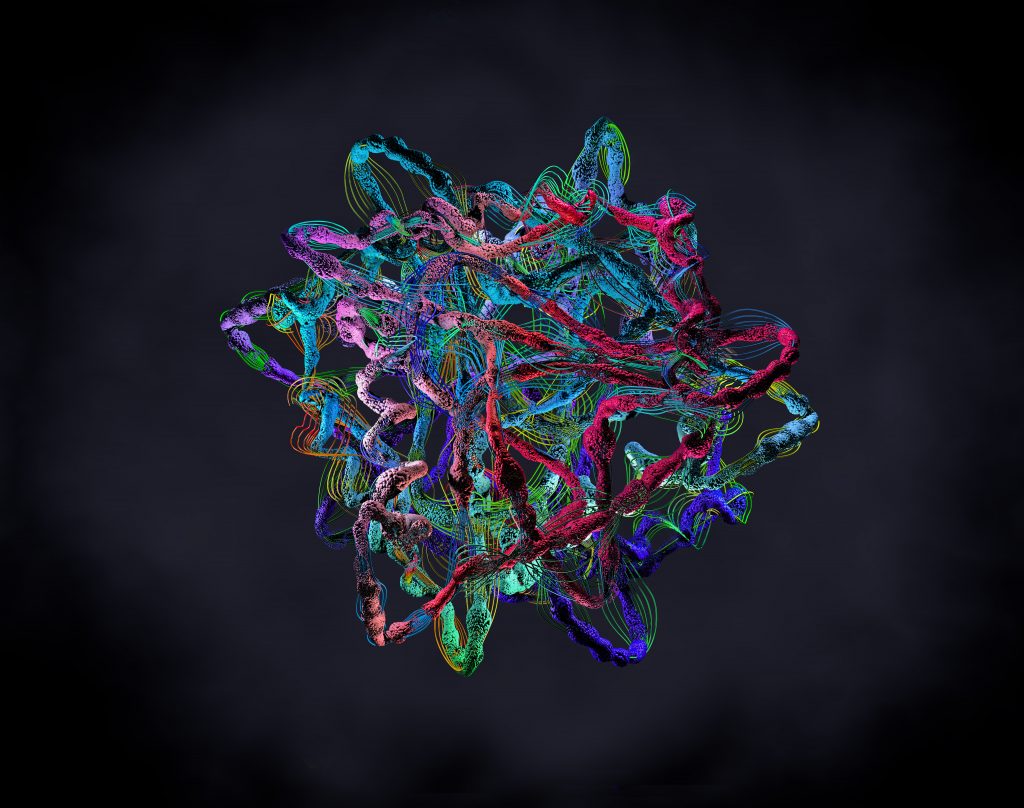Peptides are tiny proteins that play a significant role in sports nutrition. They’re especially effective at providing lasting energy and helping you recover from workouts. The peptides also improve muscle mass and strength and reduce body fat. Peptides account for a significant portion of the proteins in the human body. As a result, peptides provide several benefits for athletes, including improved performance, reduced fatigue, and injury prevention. In addition to their athletic benefits, peptides can be used as supplements for people who don’t eat meat or dairy. This article will cover everything you should know about peptides and their role in sports nutrition.
What Are Peptides And Their Importance In Sports Nutrition?
Peptides make up the proteins in the body. Collagen peptides are particular peptides that play an essential role in muscle health and repair. When taken as part of a sports nutrition plan, collagen peptides can help promote strength and endurance. Additionally, they can help reduce inflammation and pain during and after workouts. Peptides can provide benefits for athletes beyond those offered by proteins alone. Collagen peptides are central to tissue healing and re-modeling. As a supplement, collagen peptides can help improve joint mobility and speed the recovery process after exercise.

Types Of Peptides: What Are The Different Types?
Peptides represent one of the most diverse and abundant biomolecules on Earth. Peptides come in different shapes, sizes, and sequences and can be made from various amino acids. The three main peptides are collagen peptides, growth factors, and cytokines. Collagen peptides are found in animal skin and connective tissue and are critical to structural support and healing. Growth factors are the proteins that promote cell growth and survival. Finally, cytokines regulate the immune system.
Peptides are of different types; each has its unique properties and function. For example, some peptides are made from the amino acids found in proteins, while others are produced from other molecules such as hormones or neurotransmitters. Here is a summary of the most prevalent peptide types:
Peptide hormones:
Peptide hormones control various physiological activities throughout the body. Peptide hormones can act as messengers between cells, triggering specific responses in the body. Some well-known peptide hormones include insulin, glucagon, and growth hormone.
Peptide toxins:
peptide toxins can have severe consequences if the body does not correctly process them. Peptide toxins can damage cells and cause health problems, such as cancer.
Top Foods Containing Peptides: Salmon, Chicken, Beef, Pork, Black Beans, Almonds
Salmon is a primary source of collagen peptides. These small peptides help maintain the elasticity of tissues and are responsible for the pink color of salmon flesh. Chicken is also shown to contain high collagen peptides and other nutrients such as B vitamins, potassium, and selenium. Beef and pork offer moderate collagen peptides, while black beans have the highest concentration of these beneficial compounds. Almonds are another great source of collagen peptides, providing more than 25% of the Daily Value (DV) for this crucial nutrient.
Peptide Structure: What Are The Basic Building Blocks Of Peptides And How Do They Work?
Peptides are long chains of amino acids often used in medicine to promote healing. Peptides are more than two amino acids linked together by peptide bonds. Twenty standard amino acids can form peptides, each with a unique chemical structure. Peptides are derived from animal and plant proteins and can be found in various foods. The basic building blocks of peptides are amino acids, which contain hydrogen and oxygen atoms. These elements interact with other molecules in the environment to create peptides.
Peptides are a type of small, organic molecule consisting of two or more amino acids. Peptides play an essential role in the body by forming proteins and other molecules. Peptides are used both as drugs and vaccines. Peptides are usually made from smaller proteins called precursors. The precursor is broken down into amino acids, which are combined to make the peptide. Peptides can be linear or branched and have any length between 1 and 100 residues.

Peptide Benefits For Athletes: How Do Peptides Help In Improving Performance?
Peptides offer numerous benefits for athletes, including boosting performance, preventing injury, and aiding in recovery. Peptides are small proteins that are chains of amino acids. They are composed of just 20 to 22 amino acids, which is why peptides perform so well as supplements. Peptides can help improve performance by increasing muscle mass, speeding up recovery time, and reducing inflammation. Additionally, peptides can work together to boost energy levels and promote better sleep patterns.
In some cases, peptides can help prevent injuries by helping the body protect itself from overuse damage. Peptides improve endurance by increasing the number of mitochondria in muscles. Mitochondria are the organelles that create energy for cells. Peptides are synthesized in the body and can be broken down into smaller peptide chains, which serve as a source of energy for muscle cells. When peptides are consumed, they enter the bloodstream and travel to the muscles, where they help increase energy levels and performance. Some benefits of consuming peptides include improved strength and endurance, faster recovery from exercise, and better immune function.
Top 5 Peptide Supplements For Athletes: What Are The Best Peptide Supplements On The Market?
Peptides are a popular supplement for athletes. They are believed to improve performance by providing an energy source and helping the body recover faster. There are many peptide supplements on the market, but which are the best? Here are five of the best:
Anabolic Fusion Peptides –
Anabolic Fusion Peptides is a potent peptide supplement designed to help athletes achieve muscle growth and improve performance. Anabolic Fusion Peptides contains 20 different peptides, including 11 beta-alanine precursors, eight creatine precursors, and five anabolic precursors.
Glutamine-containing peptides –
They help in boosting muscle growth anabolism, improve immune system function, and promote better sleep quality.
Amino-Peptide Complex –
This supplement contains a mix of eight peptides, each with its own benefits. It helps increase muscle mass and improve strength and endurance.
BCAA Peptides –
These peptides comprise the amino acids leucine, isoleucine, and valine. They are great for building muscles and promoting recovery after exercise.
Human Growth Hormone Peptides –
GH peptides promote increased muscle mass and improved joint function in athletes.

Peptides in Sports Nutrition: Future Applications and Research Priorities
Peptides are formed when proteins are degraded. Peptides offer a rich potential for sports nutrition, as they can provide numerous benefits, such as increased muscle protein synthesis, improved athletic performance, and reduced inflammation. Many peptides are shown to benefit athletes and impact muscle health and performance. Considering this, here are some future research priorities for peptides in sports nutrition:
- Elucidating the mechanisms by which peptides promote muscle growth and development.
- Exploring the effects of peptide supplementation on exercise performance.
- Investigating the use of peptide blends in sports nutrition.
- Studying the role of peptides in chronic inflammatory diseases.
- Exploring new applications for peptide delivery methods, such as oral sprays or capsules.
Scientific Research On How Can Peptides Improve Athletic Performance?
Peptides are small proteins that are found in all living cells. The peptides studied the most for their effects on athletic performance are the branched-chain amino acids (BCAAs). Researchers have found that bioactive peptides may improve muscular strength and anthropometric alterations. They may also lessen muscle damage after exercise and trigger advantageous connective tissue adaptations.
Bodybuilders and other athletes have used peptides for years. Still, it wasn’t until recently that they became more popular among fitness enthusiasts and bodybuilders to gain muscle and strength. Scientific research proves the benefits of using Peptides in your training and nutrition program. Peptides are chains of amino acids used by the body to repair muscle tissues and regenerate muscle fibres. The body naturally produces them, but they are also made in supplement form to help with muscle growth, muscle repair, and strength development.
Peptides are just 20 amino acids and can be quickly digested and absorbed by the body. This means that peptides can immediately boost energy levels and performance. For example, one study found that peptides increased muscle performance by 8% in resistance-trained athletes. Another study found that supplementation with peptides improved aerobic endurance by 22%. There is scientific evidence that peptides can enhance athletic performance in various ways.
What Does All This Mean For Athletes And Their Protein Intakes?
Peptides offer athletes a novel way to boost protein intake without compromising performance. Peptides can be easily absorbed and provide a high-quality protein source without the stomach ache familiar with other proteins. In conclusion, peptides are powerful sports nutrition substances that can help athletes achieve their goals. Peptides are a fantastic addition to athletes’ protein intakes and can help with muscle growth and recovery. They are fast-acting and have many benefits, making them ideal for athletes who need an edge in the competition. If you’re looking to improve your performance, peptides are a great way to do so. So what are you waiting for? Start incorporating peptides into your diet and see the results for yourself!




